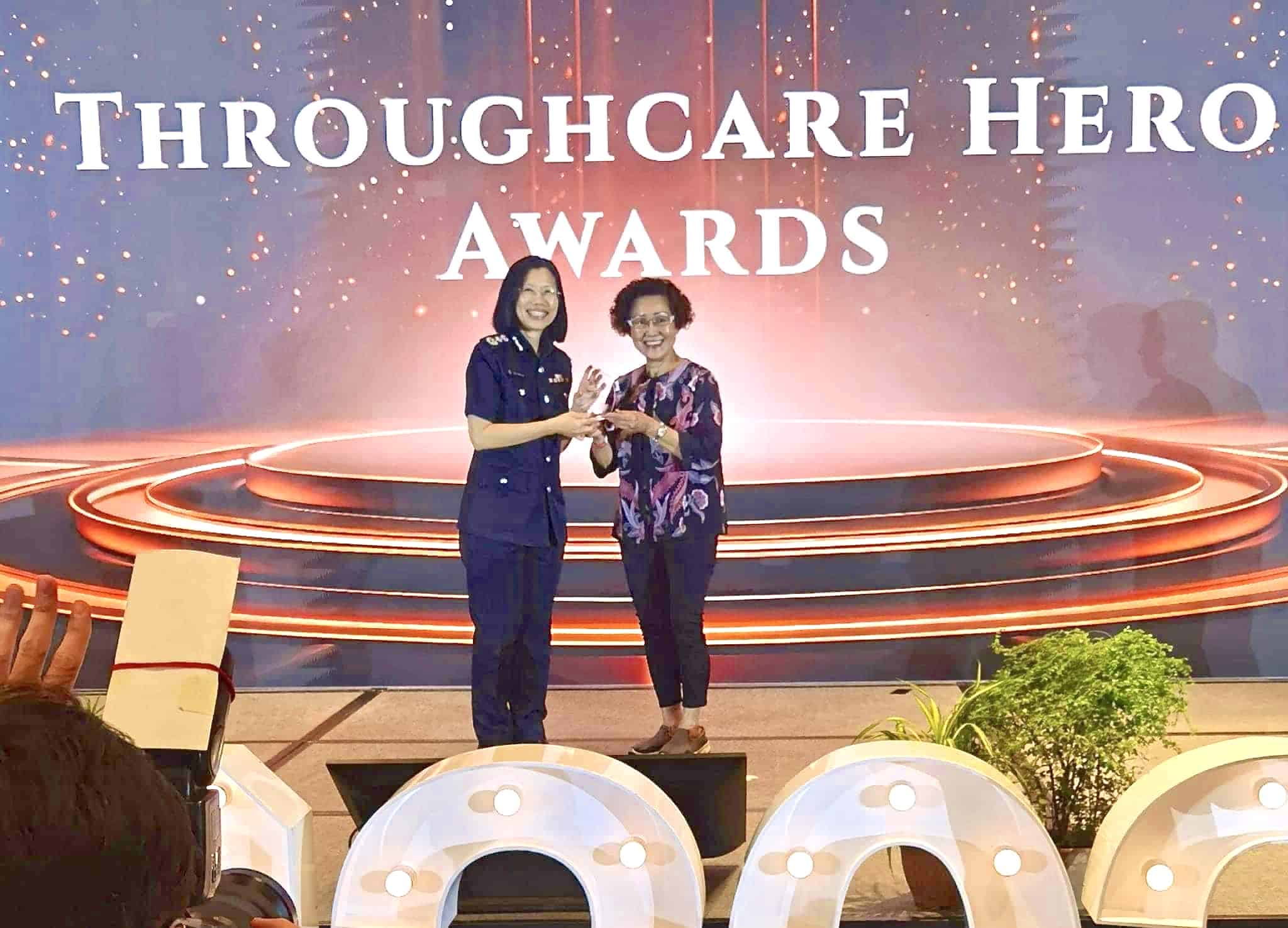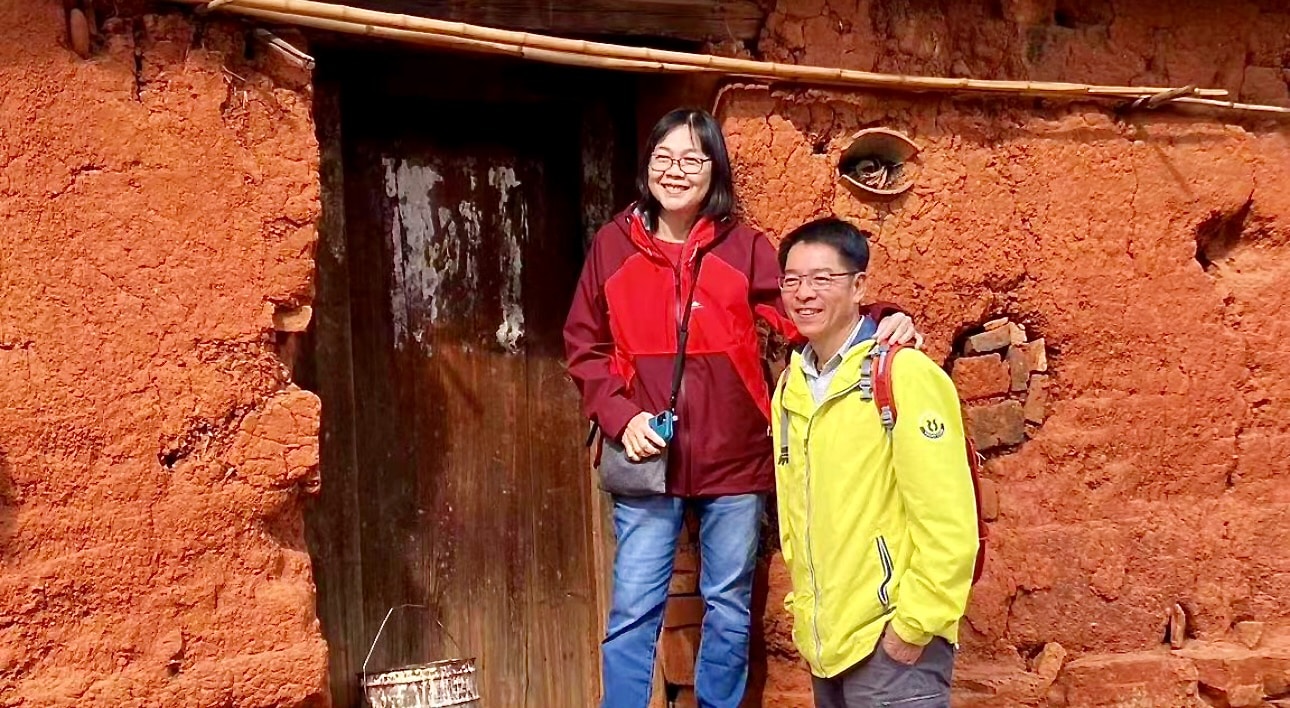This pastor is “brother” to thousands of migrant workers
by Tan Huey Ying // May 13, 2020, 6:10 pm
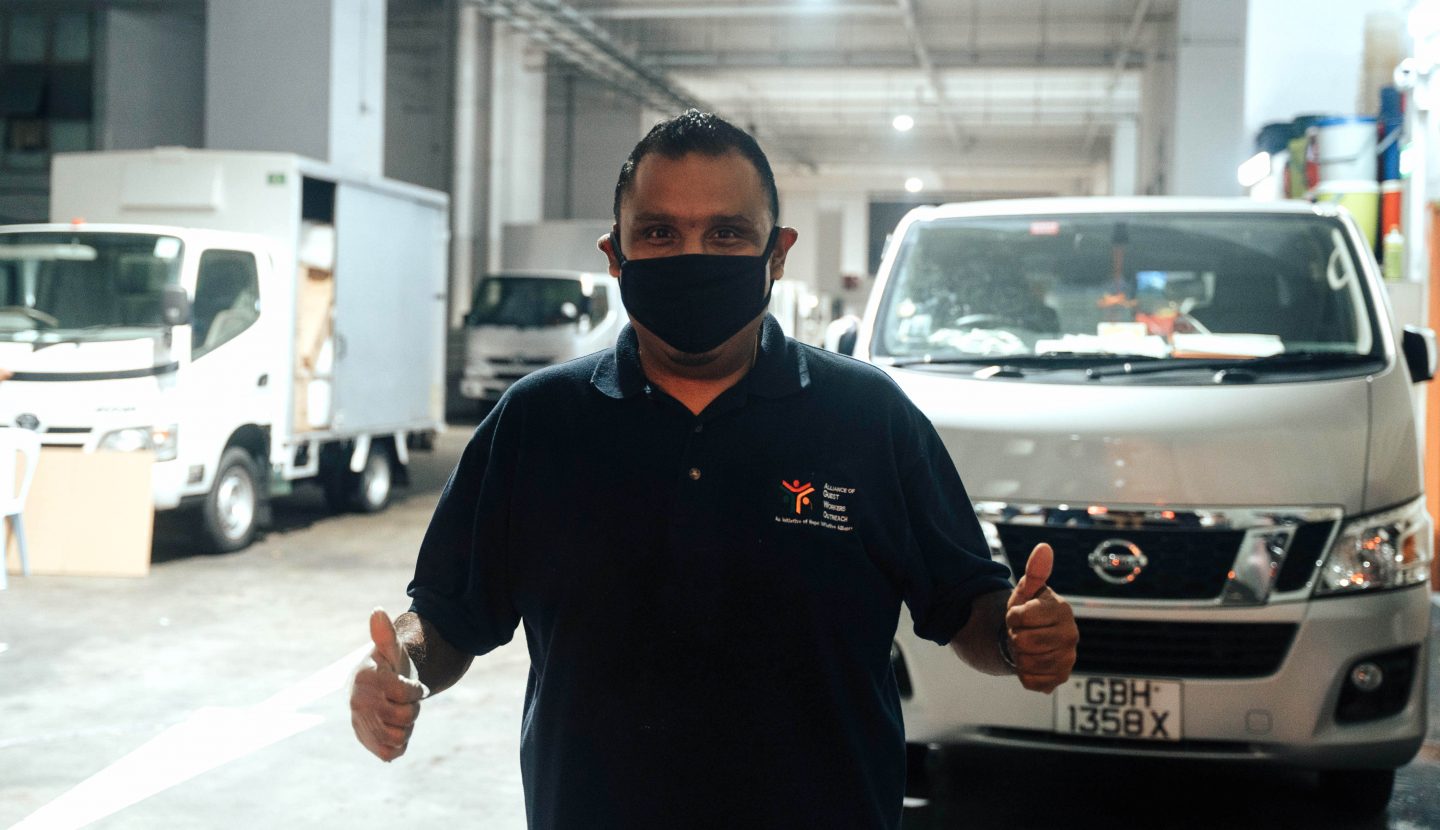
Growing up, Pastor Sam used to have "no less than five guest workers in my house at any point in time. Every day". His father was an evangelist from India who would invite the workers to share their meals and stay over. Photo by Marcus Chow.
“Anna, I miss you! Very long never see you.”
The shopkeeper manning the till at a minimart along Tuas View Square paused to greet Pastor Samuel Gift Stephen before he continued scanning the items of a customer in line. (Anna means elder brother in Tamil.)
“Two days never come, where you go?” he asked Pastor Sam, or just Sam, as he is known amongst the men in the area. The surgical mask he is wearing hides most of his face, but his eyes crinkle from his smile.
Ever since Singapore’s Circuit Breaker kicked in, this enclave of dormitories along Tuas View has become his “second home”.
The warmth and familiarity in the shopkeeper’s greeting is not surprising even though the two men have not known each other for more than a month.
Ever since Singapore’s Circuit Breaker kicked in, this enclave of dormitories along Tuas View has become what Pastor Sam calls his “second home”. He considers the workers who live here his family.
In some ways, they are.
Pastor Sam’s father was an evangelist from Sri Lanka who had a heart for migrant workers, and Pastor Sam literally grew up with them.
“There were no less than five guest workers in my house at any point in time. Every day,” he says. “They would stay over and sleep beside me. It was a part of life.”
Not migrant workers, brothers
“They are not ‘migrant workers’, they are my brothers,” says Pastor Sam, who spends between 12 to 15 hours every day going from one dormitory to another, checking in with the workers there and following up on new leads.
All this, while new COVID clusters are being discovered daily in the area and some workers are ushered onto waiting buses to be taken into quarantine by healthcare workers fully decked out in personal protection equipment.
“Brother, you need anything, you call me, okay? Anything.”
The search for new dorms can take Pastor Sam as far across the island as Defu or even to Chinatown. But most of his time is spent in Tuas View where he spends time with many of the men with whom he has started building friendships.
“These guys need someone they can trust,” says the father of two young daughters, aged three and one.
Wearing masks and separated by a gate or a grille, Pastor Sam takes the time to talk to the men. Each conversation lasts anywhere from five to 15 minutes and ranges in topic from how palatable the meals were, to latest COVID updates and explanations regarding the latest circulars.
Without fail, Pastor Sam leaves with these reassuring words: “Anna, you need anything, you call me, okay? Anything.”
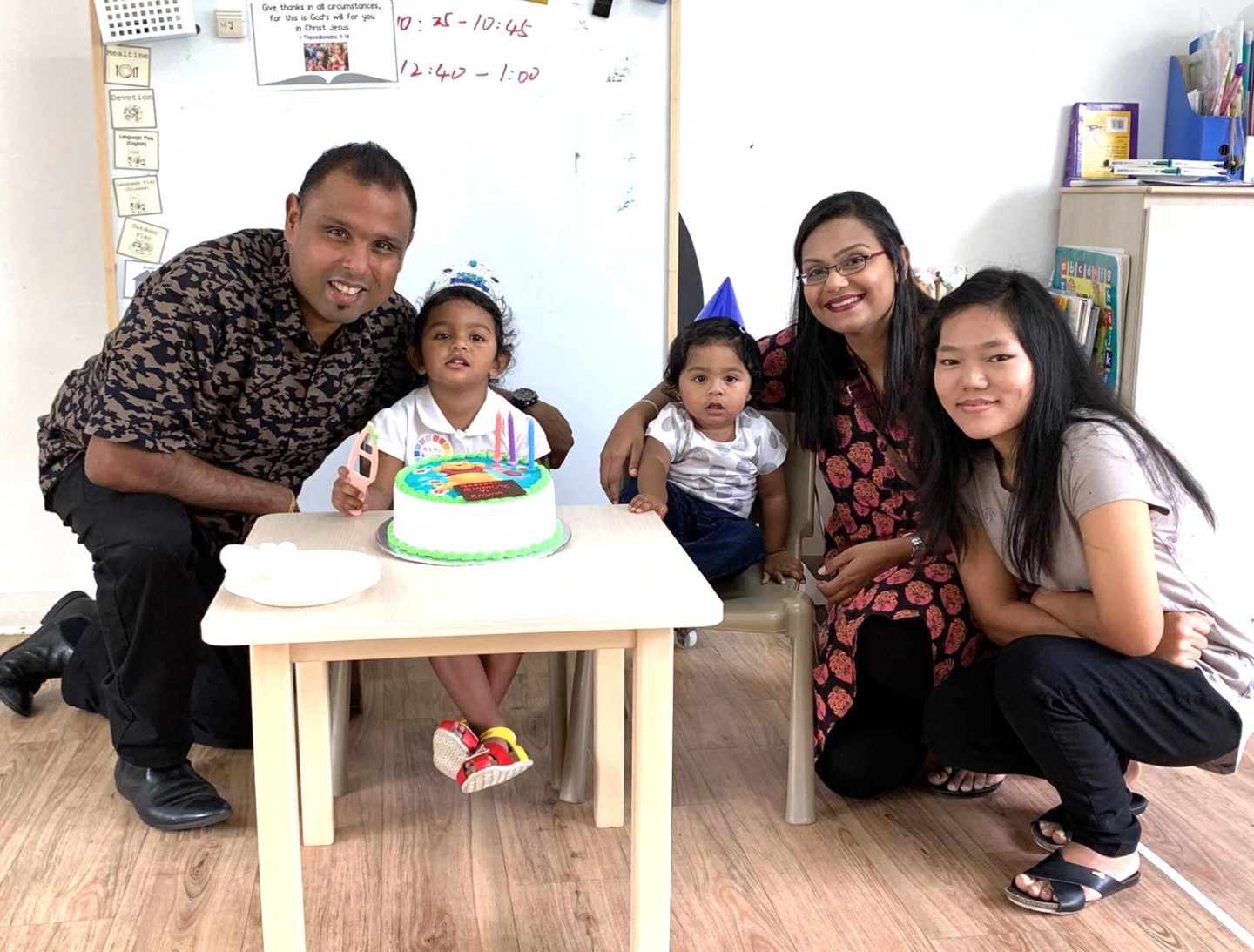
Pastor Sam with his daughters,(from left) Emmanuella Gift Stephen and Daniella Blessing Stephen, his wife, Pastor Grace Deborah Samuel and his domestic helper, Hannah, whom he considers his eldest daughter. Photo courtesy of Pastor Samuel Gift Stephen.
Extra curry
Early on in the coronavirus outbreak, the dormitories were rife with fear and uncertainty because nobody understood what was going on. As daily infection rates spiked, the workers thought that it was only a matter of time before every one of them got infected, says Pastor Sam.
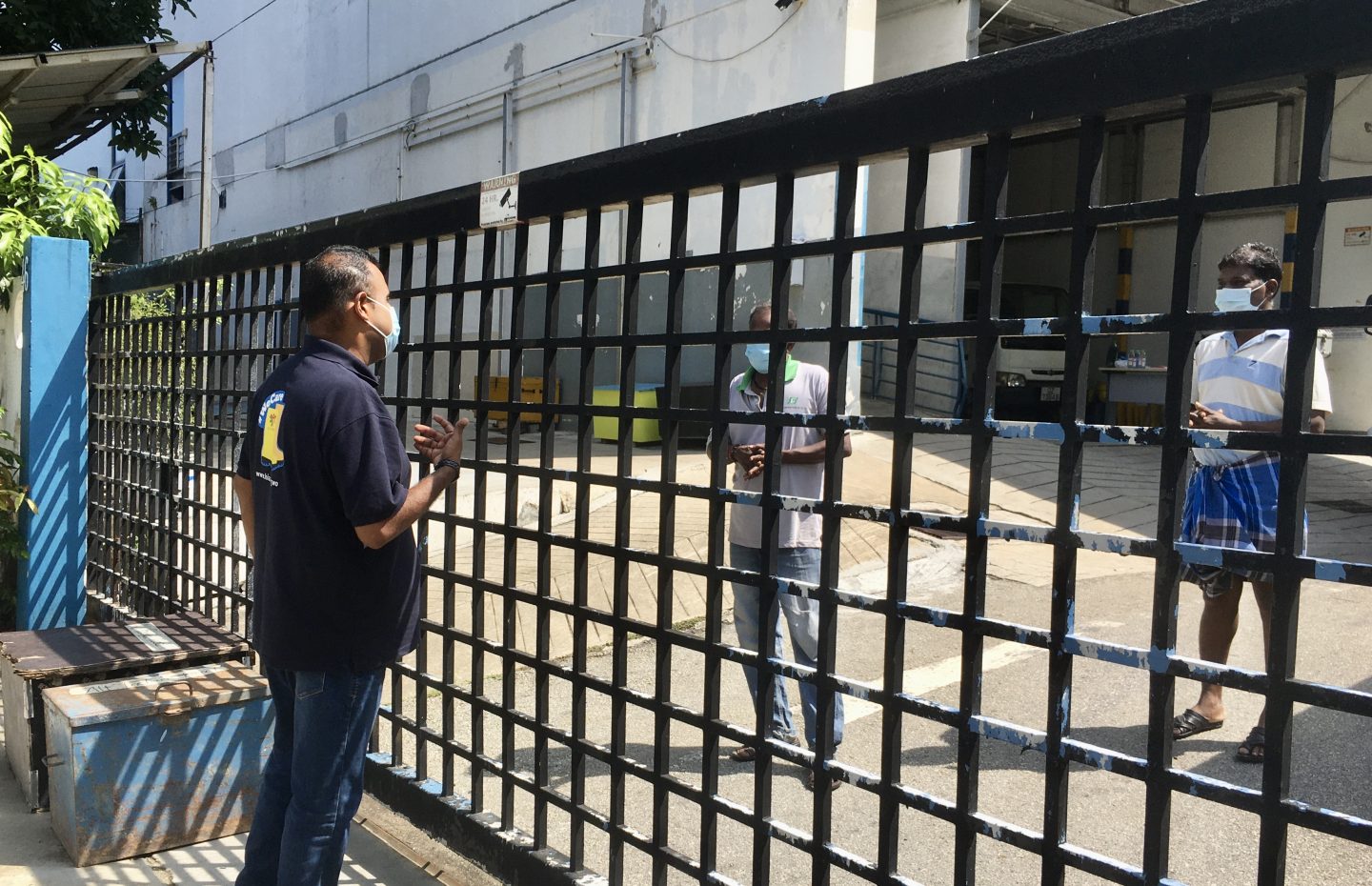
Separated by masks and a gate, Pastor Sam spends long days walking the ground amongst workers at Tuas dormitories. He is well aware of the risks, but the welfare of his brothers is his main concern. Photo by Tan Huey Ying.
Although the number of positive cases remains high, the atmosphere feels different now, thanks to the presence of Pastor Sam, volunteers, and the caterers hired by Hope Initiative Alliance-Alliance of Guest Workers Outreach. They are some of the friendly faces that the workers in Tuas View recognise and depend on for information.
“Calling them brothers means that what we eat, they should eat.”
The 43-year-old Singaporean who is the Chairman of the Alliance of Guest Workers Outreach (AGWO) has been spearheading efforts to feed and care for over 12,000 migrant workers in 260 dormitories. Most come from either India or Bangladesh and have been put on Stay Home Notice since April 20.
Under the umbrella of Hope Initiative Alliance (HIA), an inter-religious collective of charities and NGOs, close to $1.8 million worth of meals have been distributed to date.
The delivery timing and quality of the food is very important, stresses Pastor Sam. “This is the only thing that they have to look forward to.”
And for those under the care of HIA-AGWO, these meals are well worth the anticipation.
“Calling them brothers means that what we eat, they should eat,” says Pastor Sam, who only works with caterers whom he can vouch for and would engage for personal events.”We don’t want to go by a ‘worker’s standard’ of quality, we go by the standard of quality that we would use for ourselves and our families.”
“The quality of food is very important. It’s the only thing that they have to look forward to.”
Keeping strictly within the budget of $3 per meal, Pastor Sam is quick to praise the generosity of many of his caterers who often top-up the meals in different ways – chicken drumsticks, an extra-hearty portion of rice and curry and, sometimes, even a sweet treat or two.
He takes the workers’ feedback about the meals seriously and has had many conversations with his caterers to make adjustments.
It is about equality, Pastor Sam stresses. “It says in the Bible: ‘You prepare a table before me in the presence of my enemies.'” (Psalm 23:5)
As a younger Christian, Pastor Sam imagined his enemies drooling at the table. “But no, that’s not it,” he says. “It is a table of restoration, of reconciliation, but, above all, a table of equality.”
Emergency meal support
This enormous undertaking of coordinating the meals and rations for 260 dormitories started with one dormitory along Tuas View Square.
In early April, AGWO was asked by the Ministry Of Manpower (MOM) if they could provide assistance to the workers there.
“I realised there was great need here.”
What Pastor Sam found shocked him. Over 200 workers in this particular dormitory were going hungry, their managers were uncontactable and they had not been paid salaries.
While the Ministry of Manpower has mandated that all employers provide catered meals for their workers, many do not do so.
Some are simply negligent and irresponsible, leaving their workers to fend for themselves. Others claim they are not aware or do not know how to go about catering meals for their employees. Still others are struggling with serious cashflow problems because work has halted.
Pastor Sam ordered lunch for the men, delivered some dry rations to tide them over for the next meal and started walking down the single lane road directly across the dormitory.
“I realised there was great need here,” says Pastor Sam as he saw the area for the first time. Tuas View Walk 2 was full of dormitories with men in similarly dire circumstances.
As an NGO, AGWO was barely a year old and was only meant to be an aggregator of groups reaching out to “guest workers” (as they describe workers who are guests in our country). Together with HIA and Migrant Workers’ Centre (MWC), an emergency meal support programme was launched.
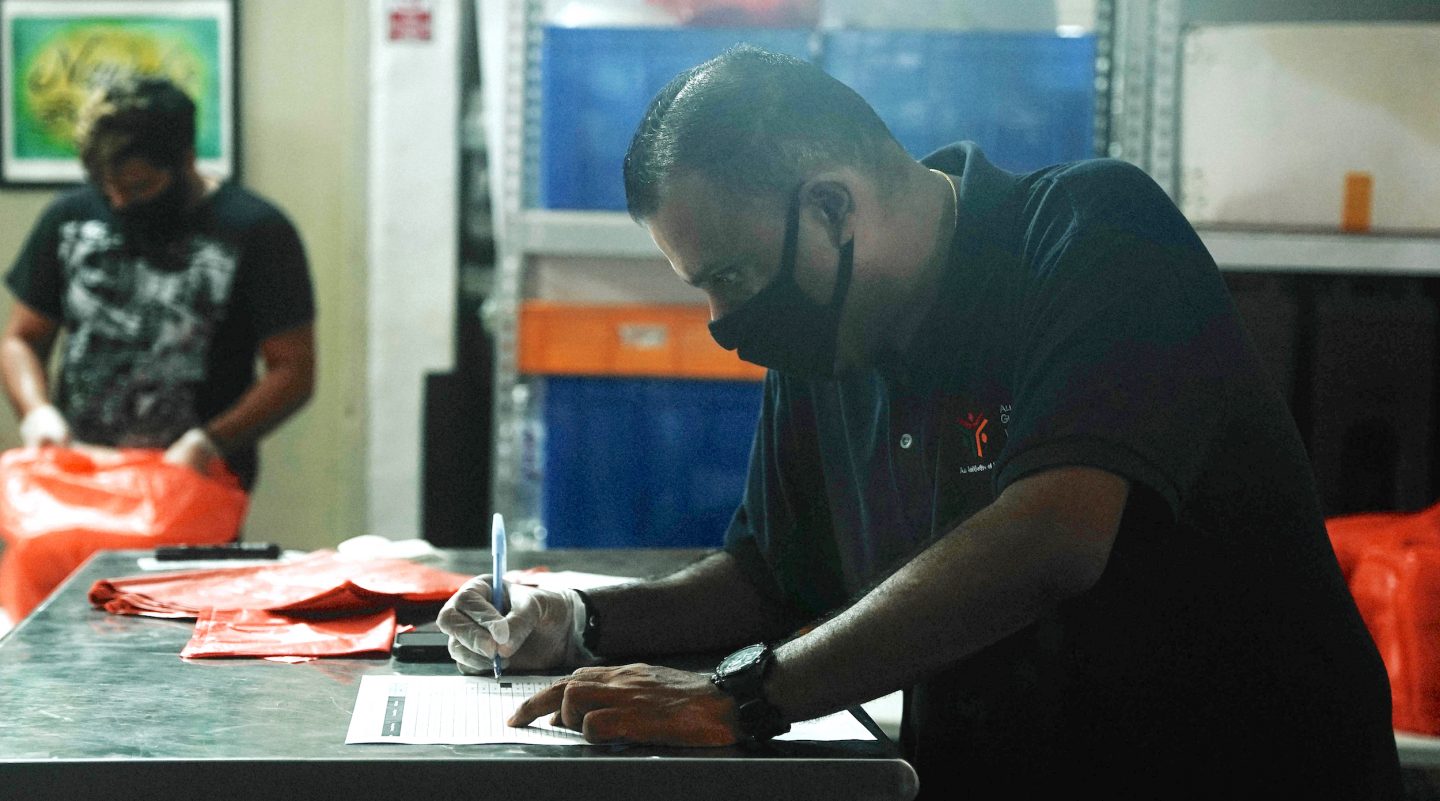
Every night since Ramadan started, Pastor Sam is at Woodlands by 1.50am to coordinate the distribution of the pre-dawn meals for fasting Bangladeshi workers. He often gets home only at 5am after dropping off the meals. After four to five hours of sleep each day, a new day begins again in Tuas at 10am. Photo by Tan Huey Ying.
Since then, they have stepped up efforts during Ramadan with over 3,000 meals dropped off for fasting workers between 3 to 4am.
Until Hari Raya is over, Pastor Sam’s time at home is limited to between 11 and 1am, which is protected family time, and from 5am to 9am, which is when he gets some sleep after the last Ramadan deliveries at Tuas View.
Toilet duty
It is a labour of love for workers now, but this wasn’t always the case.
Despite being positive by nature, there was a time when Pastor Sam was aggravated by the very presence of the workers.
“I would sit across them at the coffee shop near my home and abuse them verbally.
“Because I saw, first-hand, how my father served them unconditionally but some backstabbed my dad and created trouble for him.”
“Don’t do anything. Your duty is to pray and clean the toilets.”
These workers were also members of his father’s church, but “they bit the hand that fed them”.
He knows now that these were just a few troublemakers. But at the age of 13, he had had enough and said: “If this is what Christianity and church is about, I don’t want anything to do with this.
“I knew the religious practices, but I had no relationship with God.”
Then he encountered God for himself at a church camp in June 2002.
At the behest of his best friend, Pastor Sam had tagged along for the church camp in Johor – armed with two bottles of whisky and a carton of unfiltered cigarettes.
He was only 25, but already, Pastor Sam, who ran an events management company then, had investigated all the major religions in Singapore and even led gangs. “I was looking for a ‘true’ religion. And I could not find it.”
At the camp, the worship session was very loud, and Pastor Sam barged into the hall fully intending to disrupt it and shut it down.
“It’s not about preaching the Gospel, it’s about being the Gospel.”
Instead, he felt compelled to sit down quietly at the back of the hall. He heard the speaker say that he had a specific message for one person in the audience that night: “You have everything. But you have nothing.”
Pastor Sam was shocked. These were the exact words he had been repeating to himself every single morning.
He approached the pastor, who prayed for him.
“For the first time in my whole life, I felt whole,” recalls Pastor Sam. Five days later, he left his business and went into full-time ministry – cleaning the toilets of the church his father founded, Smryna Assembly (Singapore). The toilet duty was assigned by his father, the late Rev John Sam Stephen, who was the senior pastor then.
“Don’t do anything. Your duty is to pray and clean,” said the late Rev John to his son.
For two whole years, Pastor Sam spent time in the presence of God and took care of this “toilet ministry”.
Being the Gospel
His father’s ethos of service is something that Pastor Sam continues to embody today.
“God is revealing all these to bring restoration, justice and peace.”
“We are so good at preaching the Gospel, but that’s not only what the world needs now, the world needs to see Jesus in you. We, as the Church, must go in and meet them at their point of need,” he says.
“God is revealing all these things within the dorms to bring restoration, justice and peace.
“If the Church does not respond, shame on us,” he states candidly.
“It’s not about preaching the Gospel, it’s about being the Gospel. Isn’t this what it means to disciple people?
We are an independent, non-profit organisation that relies on the generosity of our readers, such as yourself, to continue serving the kingdom. Every dollar donated goes directly back into our editorial coverage.
Would you consider partnering with us in our kingdom work by supporting us financially, either as a one-off donation, or a recurring pledge?
Support Salt&Light
